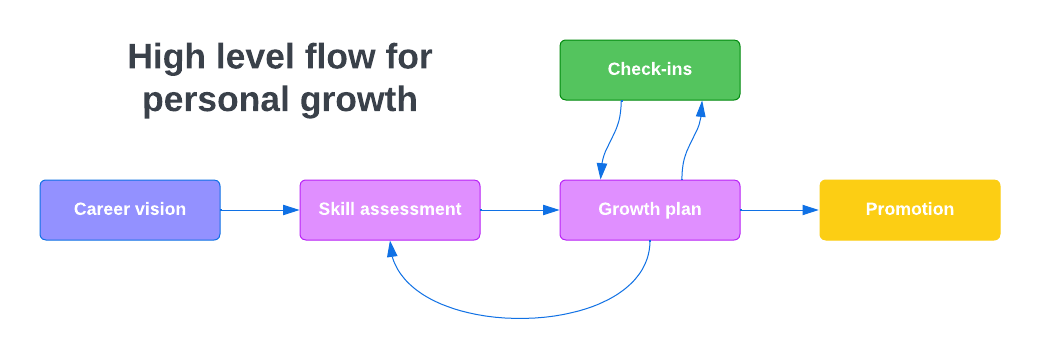As a leader, your main job is to cultivate the potential of your team members and help them unlock their full talents and abilities. By investing in their growth and development, you're not only unlocking their potential, but also unleashing the full potential of your team as a whole.
At Percona we take talent growth seriously. In this article I want to share how we approach it and what are the processes.
At Percona we take talent growth seriously. In this article I want to share how we approach it and what are the processes.
Competency matrix
Competency matrices describe the skills somebody should have to be in a certain role. The importance of the skill might vary depending on the product itself, its lifecycle and existing goals or OKRs. We will discuss it more below.
As an example, here is our competency matrix for Product Management individual contributors roles (inspired by Intercom).
As an example, here is our competency matrix for Product Management individual contributors roles (inspired by Intercom).
The Process
The high-level process that I usually follow looks like this:

Career vision
How often do you think about your long-term career goals? What about short term? In this stage, it is important to ask your direct reports to capture this. You should understand how they see themselves now, what their strengths and weaknesses are, and what is the career path they see ahead.
Skills assessment
It has few steps:
- Direct report does a self-assessment based on the Competency Matrix
- Manager does the same separately
- In 1-1 compare the notes and agree on the baseline
Skill assessment can be done in the spreadsheet, Notion page or any other tool of your choice. As a result each core competency must have a corresponding score agreed between the direct report and the manager. For example:

Growth plan
Once the baseline is defined, it is time to start working on the growth itself. Pick maximum 3 (picking more than 3 blurs focus) core competencies and define a 3-6 months growth plan for those. The goal here is to craft a plan in a way, where it is aligned with both the career vision and business / product goals. Needless to say the plan should have proper milestones set in a SMART way.
Check-ins
It is important to regularly review the progress - it can be existing weekly 1-1s or completely separate calls.
Iterate
At Percona we have quarterly performance reviews, where we discuss both OKRs and personal growth results. Based on these discussions we might go back to the Skill Assessment stage and do more rounds on growth planning.
Promotion
Promotion can be a new role, salary increase or even a new assignment. It should obviously get someone closer to their career vision. The number of growth plan iterations may vary and depend on multiple factors.
It is quite dangerous to measure the leadership success with the number of promotions as it may become a vanity metric. But fostering an environment where personal growth and business results come together is very important and rewarding.
